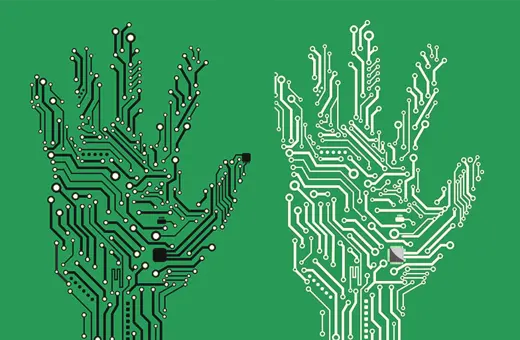The U.K. government has just appointed a new minster, widely referred to as the minister for 'common sense'. But what common sense is, is widely disputed, not just among philosophers but in everyday life. Using the rhetoric of common sense is in fact often used to present controversial claims as obvious, and conceal ideological commitments, argues Peter West.
Amidst the comings and goings of his cabinet reshuffle, Prime Minister Rishi Sunak has created a new position in government: the ‘minister for common sense.’ The news reads like satire, something out of The Onion, or a Monty Python Sketch, and the newspaper that broke the story only made things sound more surreal, calling the appointee, Esther McVey, the “common sense tsar”. Her goal? To “lead the charge on the government’s anti-woke agenda.”
When asked on the BBC’s Today Programme what a ‘common sense tsar’ is, the new cabinet chair Richard Holden failed to give a clear answer. He denied that the role was all about promoting the government’s ‘anti-woke’ agenda and alluded to conserving free speech in British universities. Jacob Rees-Mog, who is perhaps as anti-woke as it gets, called the name of the position “silly.”
___
Not all philosophy is opposed to common sense, but much of it is. Some philosophers have drawn on it to support their views, while others have dismissed it as something irrelevant to serious inquiry, and some have denied its existence altogether.
___
Leaving aside the silliness for a minute, this episode elicits a genuine philosophical question. Is there such a thing as common sense, and if so, what is it?
This is a strange question to ask. It seems strange because of what common sense is meant to be; something that is common to us all and which we all use, all the time. If something were the preserve of a select few, or something we had to be trained to use, it wouldn’t be common sense. Often, those of us who fail to perform the tasks of everyday life – getting to work on time, avoiding parking tickets, tripping down the stairs – are mocked for lacking common sense. As a philosopher, I get accused of this all the time, especially by family members. But what is it that people like me are accused of lacking?
Not all philosophy is opposed to common sense, but much of it is. Some philosophers have drawn on it to support their views, while others have dismissed it as something irrelevant to serious inquiry, and some have denied its existence altogether. One thing that becomes very clear, though, when we examine the history of philosophy, is that 'common sense' is an extremely elusive concept.
Consider, for a moment, the specific case of eighteenth-century debates in the philosophy of perception. George Berkeley, an Irish philosopher and bishop, claimed that his infamous theory of idealism, which is the view that ‘to be is to be perceived,’ is common sense. But having read Berkeley’s philosophy, the Scottish philosopher and father of the ‘Scottish School of Common Sense Philosophy,’ Thomas Reid, claimed that he had never heard anything more absurd. As far as Reid was concerned, you couldn’t come up with something less common-sensical if you tried.






















Join the conversation